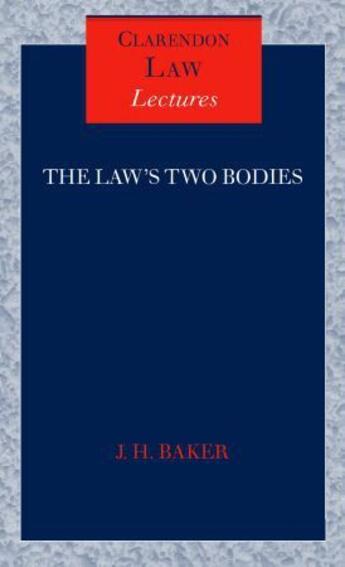-
Date de parution : 16/09/2010
-
Editeur :
Oxford Up Elt
-
EAN : 9780199245185
-
Série :
(-)
-
Support :
Papier
Résumé:
Another volume in the Clarendon Law Lectures series The author is the leading legal historian of English Legal History in the UK An important contribution to understanding the character of the common law tradition The common law is almost universally regarded as a system of case-law,... Voir plus
Another volume in the Clarendon Law Lectures series The author is the leading legal historian of English Legal History in the UK An important contribution to understanding the character of the common law tradition The common law is almost universally regarded as a system of case-law, increasingly supplemented by legislation, but this is only partly true. There is an extensive body of lawyers' law which has a real existence outside the formal sources but is seldom acknowledged or discussed either by theorists or legal historians. This will still be so even when every judicial decision is electronically accessible. In the heyday of the inns of court, this second body of law was partly expressed in `common learning'. a corpus of legal doctrine handed on largely by oral tradition and a system of education informing the mind of every common lawyer. That common learning emanated from a law school in which the judges actively participated, and in which the lecturers of one generation provided the judiciary of the next. Some of it was written down, though the texts were until recently forgotten, and its importance was overlooked by historians as a result of changes in the common-law system during the early-modern period. Other forms of informal law may be seen at work in other times and contexts. Although judicial decisions will always remain prime sources of legal history, as well as of law, the other body of legal thought and practice is equally `law' in that it influences lawyers and has real consequences. Neither the history nor the present working of the common law can be understood without acknowledging its importance.
Readership: Scholars and students of the English system and British legal history
Donner votre avis















